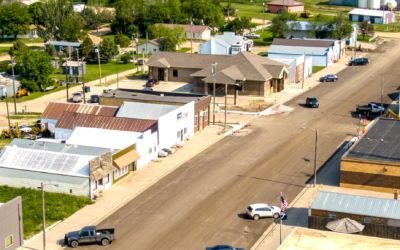Networks Have Upper Hand Over Programming Fees
Price increases are one of those unpleasant realities we all face. In 2022, this has become especially obvious when filling gas or shopping for groceries can cause sticker shock. Many factors impact the price of a gallon of gas or milk. The same is true for cable television rates.
Beginning Aug. 1, 2022, Golden West cable subscribers will pay a little more each month to cover programming costs. While Golden West would love to keep cable rates the same, forces beyond our control make this impossible.
What Factors Impact Pricing?
Cable rates are impacted by two separate external forces: programming charges and retransmission consent fees. While both are negotiated contractual costs, the stations and programmers have the upper hand. If their demands aren’t met, they won’t share their signals. They just might hold Spongebob Squarepants hostage! Retransmission consent fees are what affiliate broadcast stations – the local channels for NBC, CBS, ABC, and Fox – charge cable operators like Golden West to retransmit their signals. Retransmission consent fees generally change toward the beginning of each year.
Golden West passes retransmission consent fees on to the consumer. The cooperative does not keep one cent of these fees. For more information about retransmission consent fees, visit goldenwest.com/retransmission.
Programming fees are the negotiated amounts Golden West must pay cable networks to broadcast their content. These costs also typically change annually. The impending August adjustment is specified as a message on July bills.
Major Cable Networks Have Leverage
Golden West works to limit price increases, but unfortunately, several major cable networks have leverage due to the significant number of channels they own. One entity, for example, currently controls over 40 different cable channels.
These networks have the edge in negotiations. They dictate not only which channels Golden West must carry, but also which cable package(s) must include those channels. For every popular cable network, Golden West might be required to carry five or six lesser channels across all packages, each at an additional cost.
The three largest entities – which together control 65 to 75 cable channels – account for almost all the programming rate changes. Smaller cable networks have kept rates largely unchanged.
Cooperative Advocates for Members
Similar to retransmission consent fees, Golden West passes programming charges on to the consumer. The cooperative will continue to advocate on behalf of its members, but our hands are tied when dealing with large monopolies. This doesn’t mean we’ll ever stop trying!



